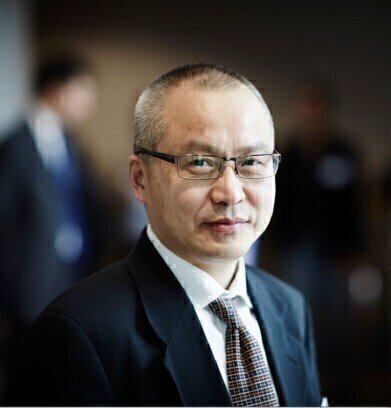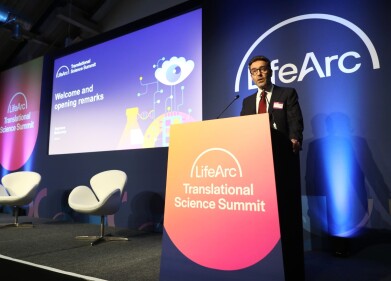-
 Prof. Hongbiao Dong
Prof. Hongbiao Dong
News & Views
Tracking Meltflow Indicates Optimal Process Conditions
Feb 04 2019
A project being led by the University of Leicester has been exploring the internal flow behaviour in additive manufacturing of metals and arc welding – the most widely used welding process in modern manufacturing. The findings, led by Professor Hongbiao Dong from the University’s Department of Engineering has shown how to optimise this process to improve efficiency and cost.
The collaborative research between the University of Leicester, Delft University of Technology, Diamond Light Source, University College Dublin and TATA Steel Research UK focused on tracking small tungsten and tantalum particles in the melt pools created during the welding process.
With much higher melting points the particles remained solid in the melt pool long enough for them to be tracked using the intense beams of X-rays emitted by Diamond Light Source’ Beam l12, selected for its specialised high energy, high-speed imaging capability at thousands of frames per second.
The resulting high-speed movies revealed how surface tension affects the shape of the welding melt pool and its associated speed and patterns of flow; it also showed, for the first time, that the melt flow behaviour is similar to that previously only seen via computer simulations.
The results indicated that arc welding can be optimised by controlling the flow of the melt pool and changing the associated active elements on the surface.
Professor Dong said: “Understanding what happens to the liquid in melt pools during welding and metal-based additive manufacturing remains a challenge. The findings will help us design and optimise the welding and additive manufacturing processes to make components with improved properties at a reduced cost.
Welding is the most economical and effective way to join metals permanently, and is a vital component of our manufacturing economy.”
A project being led by the University of Leicester has been exploring the internal flow behaviour in additive manufacturing of metals and arc welding – the most widely used welding process in modern manufacturing. The findings, led by Professor Hongbiao Dong from the University’s Department of Engineering has shown how to optimise this process to improve efficiency and cost.
The collaborative research between the University of Leicester, Delft University of Technology, Diamond Light Source, University College Dublin and TATA Steel Research UK focused on tracking small tungsten and tantalum particles in the melt pools created during the welding process.
With much higher melting points the particles remained solid in the melt pool long enough for them to be tracked using the intense beams of X-rays emitted by Diamond Light Source’ Beam l12, selected for its specialised high energy, high-speed imaging capability at thousands of frames per second.
The resulting high-speed movies revealed how surface tension affects the shape of the welding melt pool and its associated speed and patterns of flow; it also showed, for the first time, that the melt flow behaviour is similar to that previously only seen via computer simulations.
The results indicated that arc welding can be optimised by controlling the flow of the melt pool and changing the associated active elements on the surface.
Professor Dong said: “Understanding what happens to the liquid in melt pools during welding and metal-based additive manufacturing remains a challenge. The findings will help us design and optimise the welding and additive manufacturing processes to make components with improved properties at a reduced cost.
Welding is the most economical and effective way to join metals permanently, and is a vital component of our manufacturing economy.”
Digital Edition
Lab Asia 31.2 April 2024
April 2024
In This Edition Chromatography Articles - Approaches to troubleshooting an SPE method for the analysis of oligonucleotides (pt i) - High-precision liquid flow processes demand full fluidic c...
View all digital editions
Events
May 15 2024 Birmingham, UK
May 21 2024 Lagos, Nigeria
May 22 2024 Basel, Switzerland
Scientific Laboratory Show & Conference 2024
May 22 2024 Nottingham, UK
May 23 2024 Beijing, China










.jpg)






